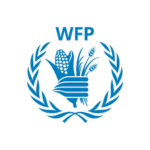The evaluation of the Shora Neza programme utilizes a mixed-methods approach, blending qualitative and quantitative data collection techniques. Designed to be participatory and inclusive, it ensures a broad spectrum of stakeholder perspectives are integrated. Key activities include in-depth desk reviews of program documentation, conducting semi-structured interviews and focus groups with a diverse range of stakeholders such as government officials, UN agency representatives, and smallholder farmers. Surveys are administered to capture relevant stakeholder insights, and participatory ranking methodologies are employed within community settings. The evaluation also incorporates network analysis to dissect relationships and interactions within the program’s framework, particularly focusing on areas like market access and finance. A pivotal component is the longitudinal study design, enabling the monitoring of developmental changes throughout the program’s duration. This comprehensive approach facilitates a multi-dimensional understanding of the program’s effectiveness, its resonance with local needs and policies, and its potential for sustainable impact.
HomeProjectsAgriculture, Food Systems, and Natural ResourcesBaseline Evaluation of WFP Mastercard Foundation ‘Strengthening Food Systems to Empower Smallholder Farmers and Young People’ in Rwanda
Baseline Evaluation of WFP Mastercard Foundation ‘Strengthening Food Systems to Empower Smallholder Farmers and Young People’ in Rwanda
Projects:
Baseline Evaluation of WFP Mastercard Foundation ‘Strengthening Food Systems to Empower Smallholder Farmers and Young People’ in Rwanda
Sector: Agriculture, Food Systems, and Natural Resources
Client: WFP
Geography: Eastern and Southern Africa
Date: June, 2024

How can we help you?
- Launching a new strategy or reviewing an old one?
- Need new data-driven insights or deep subject-matter expertise?
- Evaluating your performance for course correction or seeking new tools to improve your effectiveness?
DeftEdge helps ensure organizations meet ethical standards and objectives on a range of issues, such as economically empowering women and refugees through access to finance and markets and mitigating the impact of climate change on vulnerable communities. (WFP, FAO, Pact, ActionAid, UNHCR livelihoods partners)
